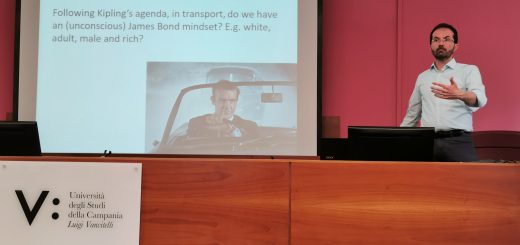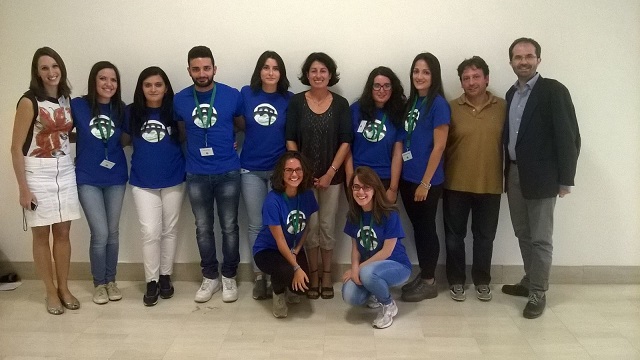Joint Conference T2M-Cosmobilities Network will start on September 14
The Joint Conference T2M-Cosmobilities Network will start on September 14 in Santa Maria Capua Vetere (Dipartimento di Lettere e Beni Culturali, Aulario di Via Perla) at 4:15 pm.
The Future of Mobilities:
Flows, Transport and Communication
The conference theme offers several lines of investigation:
- The future of mobilities in terms of both the future of mobilities studies as well as the future of mobilities itself.
- The question of time-frames, e.g. how research concerning the past and the present of mobility can be linked to the future.
- Mobility in the broader horizon of flows and emergent connections between transport, communication and movements.
- Trans-disciplinary research paths, and related theoretical and methodological issues.
Mobility studies have developed out of different disciplinary trajectories, with some studying mainly the past (e.g., transport history, travel writing), others concerned especially with the present (e.g., geography of mobility, mobile media), and still others looking towards the future (e.g., the new mobilities paradigm, transition studies).
Yet these historical, contemporary, and future-oriented perspectives may all be diachronic in character, interested in processes and projects, rhythms and articulations, transitions and transformations, evolutions and revolutions. This conference proposes to investigate how we might bring these three streams together into an over-arching project of mobility studies.
The questions linked to the conference theme include (but are not limited to):
How do we envision and perceive the future of mobilities?
- What economic, technological, and policy perspectives should we adopt?
- What role will be played by environmental issues?
- How will gender and other social disparities shape mobility futures and inform mobility studies in the future?
- What is the role of social science and humanities research scholarships and education in relation to policy makers, industries, governments and civil society?
- How relevant can an inquiry into retrospective futures be, e.g. an historical study of the future envisioned in the past, including fiction and science fictions?
- How can – or even should – comprehensive mobility studies shape future mobility landscapes and lives and in what directions?
- What methods would improve our study of the intertwined connections of flows, transport and communication?



Commenti recenti